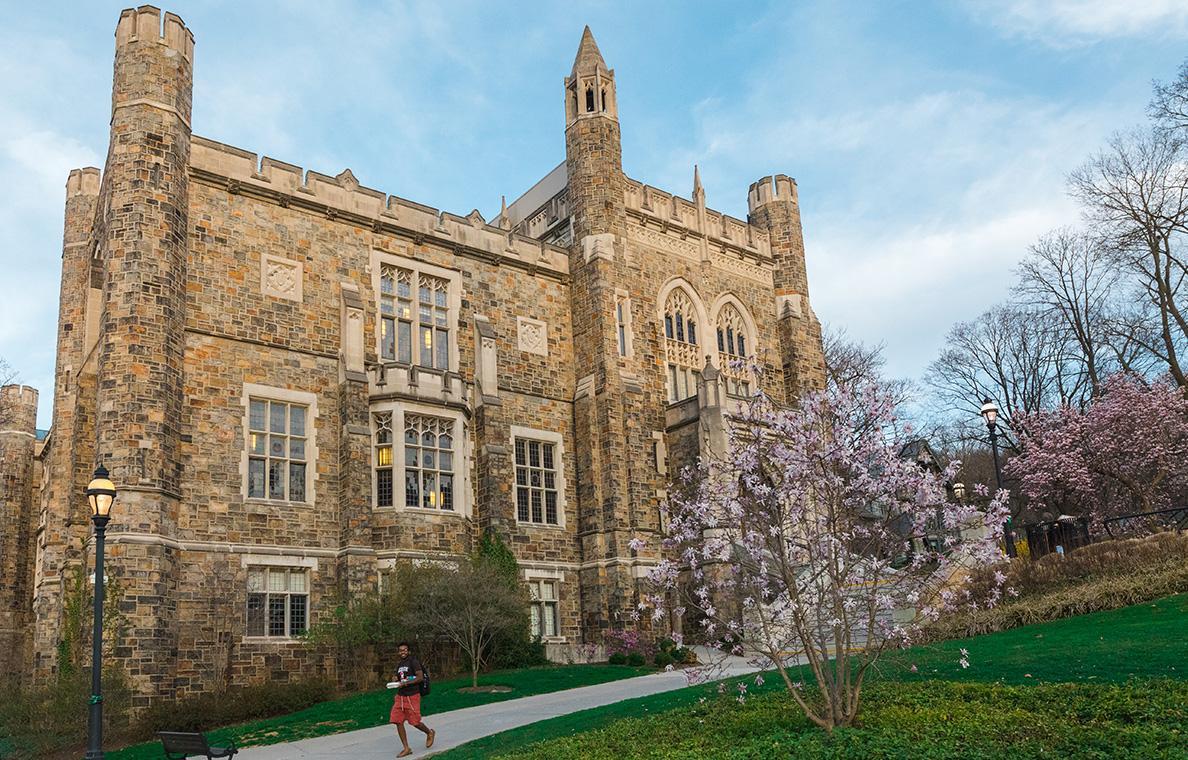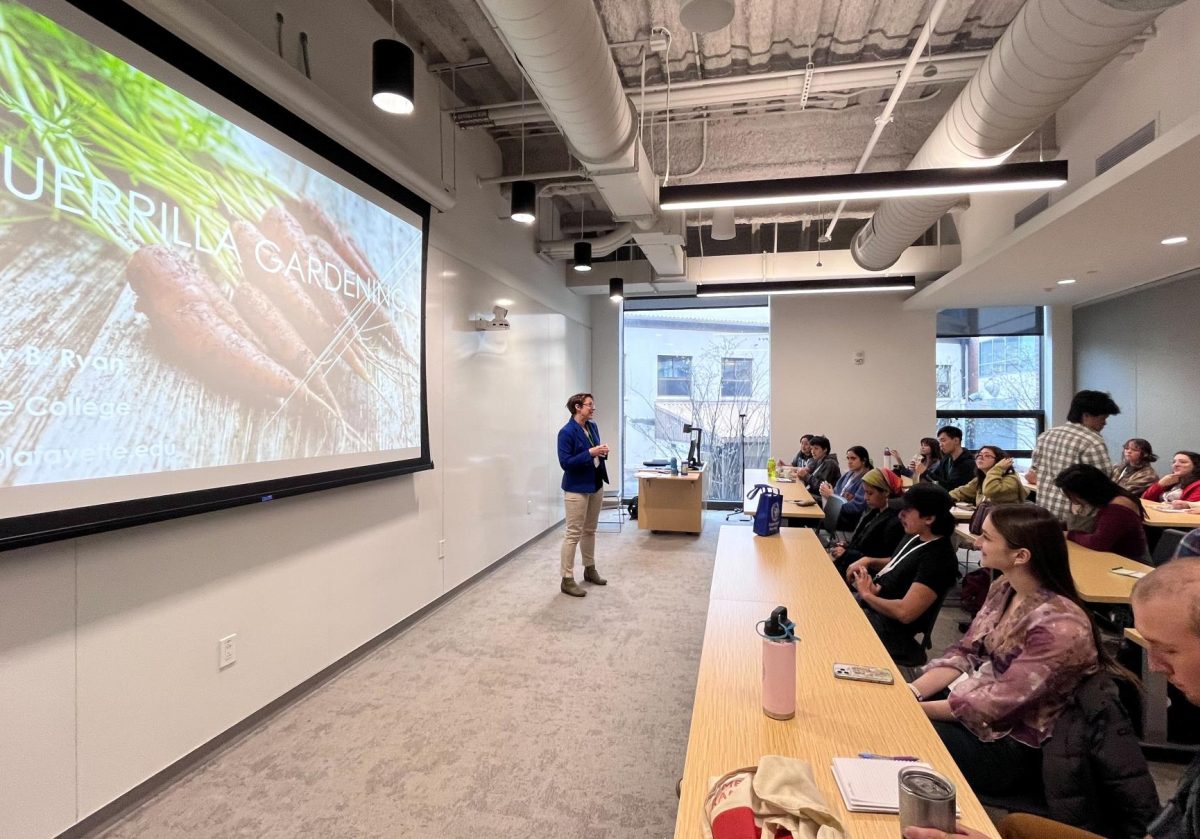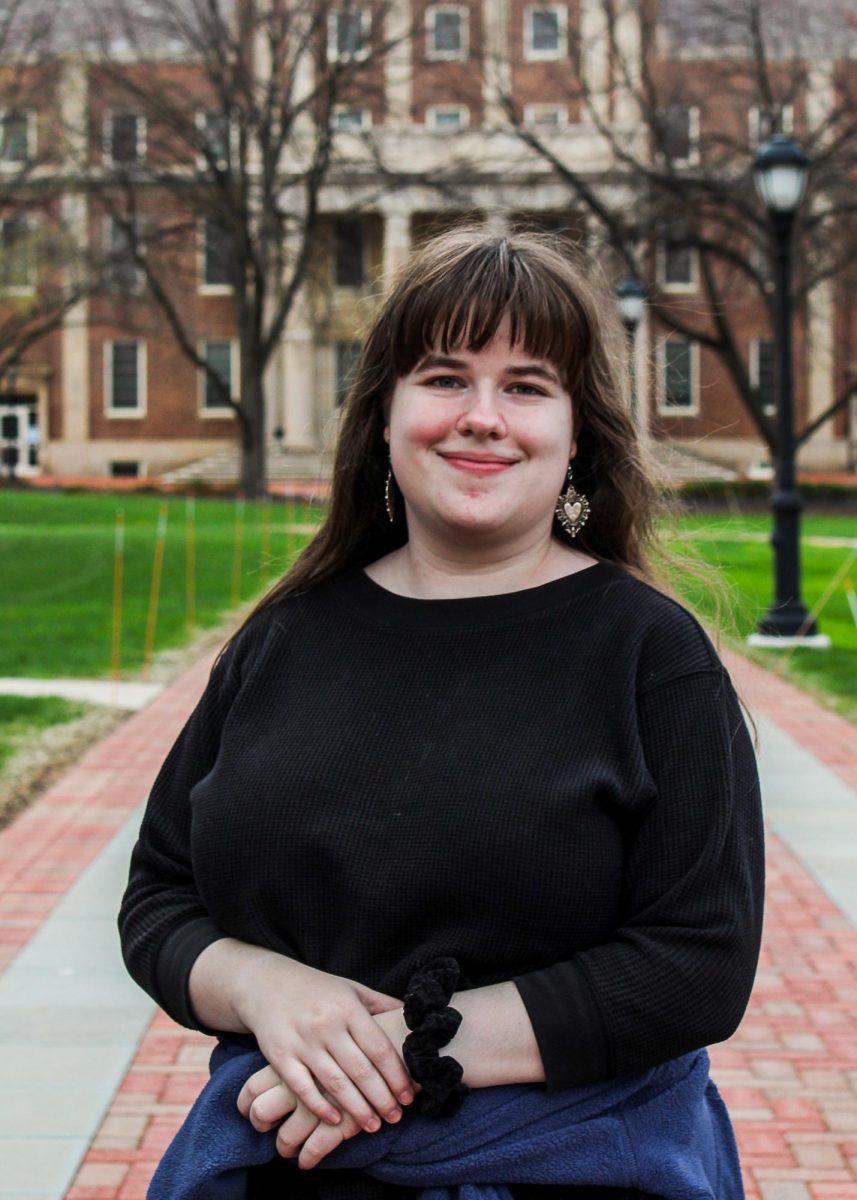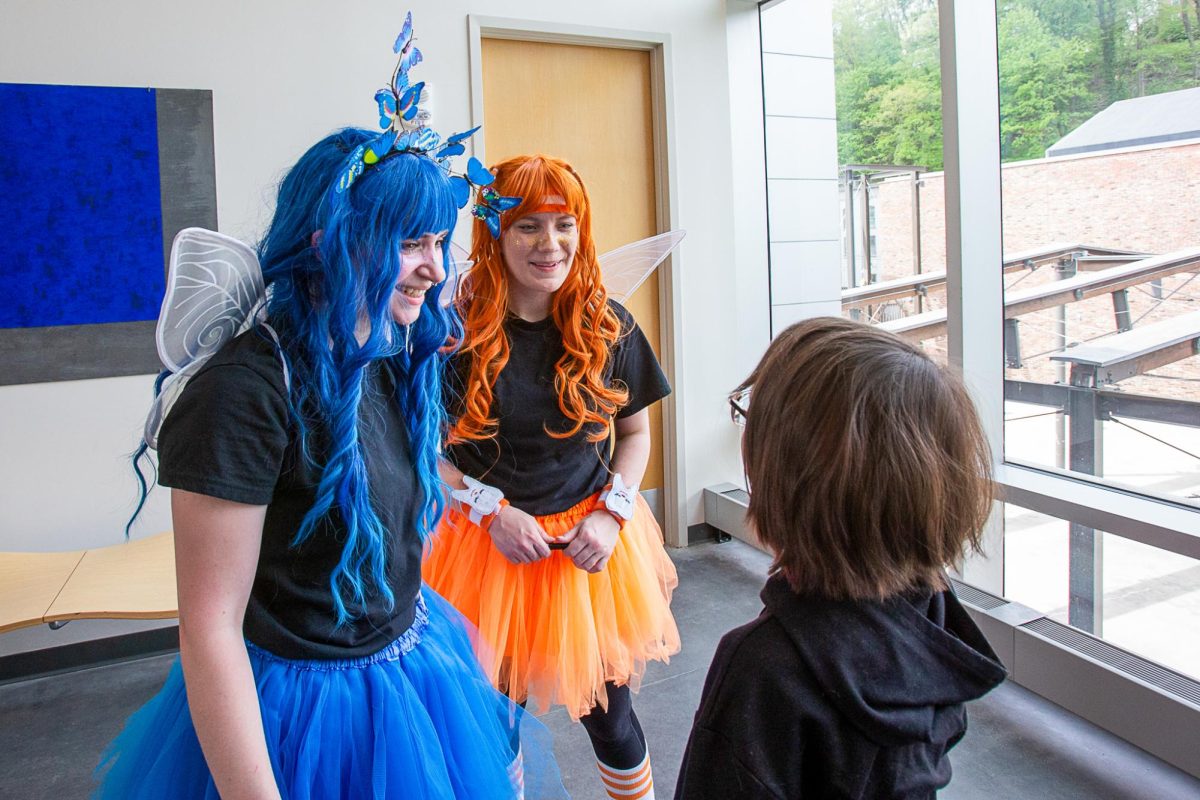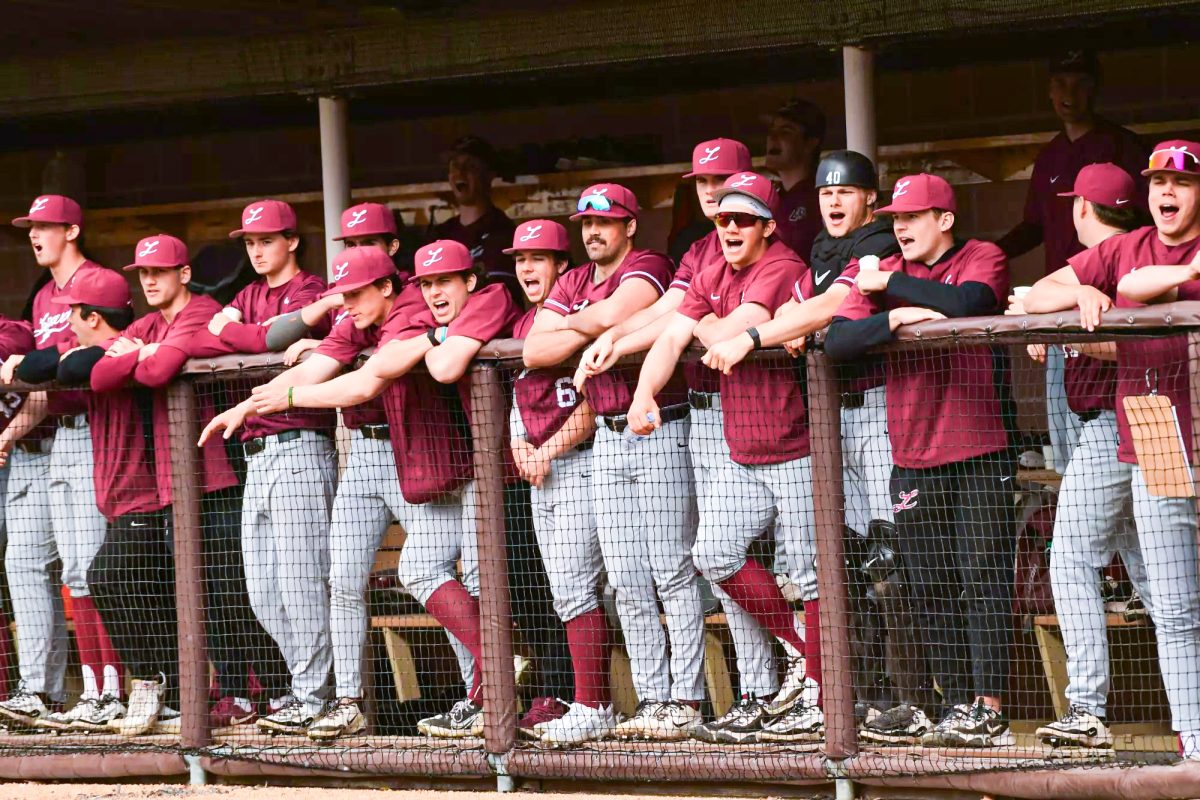Less than a year into the COVID-19 pandemic and eight years into her presidency, Alison Byerly will be stepping down from her role as college president. Byerly said that this summer marks a “natural breakpoint” for the college to transition to new leadership.
“Whoever is going to set the agenda for the college for the next long stretch of time ought to be in it from the beginning,” she said.
Byerly announced her decision in a letter to the community on Tuesday, stating that she would be stepping down following the conclusion of her second contract on June 30, 2021. In a follow-up letter to the community, board of trustees chair Robert Sell ’84 said that the process to search for Lafayette’s 18th president will begin “immediately.”
“Such a search is…an attempt to find a leader, whose skills, interests, and background match the needs of the institution in a particular phase of its development,” he wrote.
The timeline for Byerly’s decision is not uncommon. According to her, the “natural lifespan” for a college presidency is seven to nine years. Former president Dan Weiss, who preceded Byerly, held the position from 2005 to 2013. Before him, Arthur J. Rothkopf was president for 12 years. Byerly’s decision also coincides with president of Lehigh University John Simon’s announcement in September that he would be stepping down at the end of the year after six years at the university.
Coming into the job, Byerly said she constructed her goals and initiatives to roughly fit a seven to nine year timeline, though she added that this timeline could have been extended.
The reason she chose not to extend her tenure, she said, was due to the college’s current situation in regards to the pandemic, ongoing capital projects and the future direction of the college.
“If we started some strategic planning process now, and then I left a year or two from now, it would be more disruptive to bring a new president in than if the new person comes in and just picks up the baton from here,” she said.
“I think the [COVID-19] crisis really accelerated my thinking…that if new leadership is going to come in place, they should get here as soon as possible. There are a lot of important decisions that are going to be made in the next couple of years. And for me to make some of them and then disappear would be hard.”
To find Byerly’s successor, the college will assemble a search committee consisting of six members from the board of trustees, three faculty members, two alumni and one current student. Two of the board members, Sell and vice chair Linda Assante Carrasco ‘90, have already been chosen.
Sell, who was part of the selection process for both Weiss and Byerly, said that he would be responsible for filling the two alumni positions, while vice president of campus life Annette Diorio will help implement the process for choosing a representative from the current student body. The faculty will also be responsible for electing their three representatives to the committee.
The committee, according to Sell, will likely be seated within the “next couple of weeks.” At the same time, the college will look to hire an outside search firm to aid in the search process. These firms, he said, each have a “strong Rolodex” of potential candidates for the job and have “deep expertise” in the field.
After the formation of the committee, the college will begin work on a presidential perspective, which Sell said is a “very exciting kind of marketing material” used to attract a broad respondent base of potential candidates. Simultaneously, one of the committee’s first duties will be to assemble a presidential characteristics profile, which it will do with substantial feedback from the Lafayette community.
“[The characteristics profile] is what we envision needing to be requisite skills and experiences of Lafayette’s 18th president,” Sell explained. “That isn’t just the committee doing that, that’s the committee also reaching out to the broader community and having different town halls, different meetings…with students, faculty, alumni, administration and staff.”
In his letter to the community, Sell called the present moment an “inflection point” in Lafayette’s history.
Enrollment this spring and in the 2021 fall semester are still uncertain, and it remains unclear how the college’s finances will be affected in the coming years as a result. At the same time, this fall marked the grand opening of the McCartney Street dorms, which was phase one of a larger two-part construction project on College Hill. This, as well as the $75 million Rockwell Integrated Science Center which opened last fall, completed unimpeded by the COVID-19 pandemic.
Other projects, like phase two of the McCartney construction, renovations to Kunkel Hall, the Markle parking deck and the Rinek rope factory, as well as the ongoing affordability and distinction through growth initiative, a plan to increase financial aid availability to incoming students by growing the size of the student body population, are currently in limbo and will eventually be the responsibility of Byerly’s successor.
“I can’t speak for…what a new president will do,” Byerly said. “I think that what we’ll have to do this spring and perhaps in the fall, is really take stock of whether the pace of growth and aspirations for growth is still realistic within this new environment.”
“But the basic imperatives behind [the affordability and distinction through growth initiative]…I think that’s pretty well built into the structure of things,” she added.
Another important aspect of the process is the work of the search firm in procuring a list of candidates, which will be culled repeatedly until it is turned into an interview list. After that, candidates will undergo thorough background checks and multiple stages of interviewing before the final selection is made.
“From the college’s perspective, their goal is to get to know as much about [the candidate] as possible,” Byerly said, reflecting on her own interview process in 2012. “But it’s important to remember that the candidate is also checking the college out because…it really is such a big commitment, that it’s not something you undertake lightly.”
Sell said he expects to finish this process by the time Byerly steps down, but that there are “a variety of optionalities” if seven months proves too short a timeline. When Byerly was appointed in 2013, she had over six months to visit the college, meet with Weiss and “become familiar with [Lafayette].” Though it is unlikely that the 18th appointee will have the same timeline she did, Byerly said she would “continue to be available to them” after she leaves.
In the meantime, Byerly said that she plans to go about business as usual.
“My role in the process…is to let the process run and to focus on running the college and keeping everything moving forward, just as it was,” she said.



